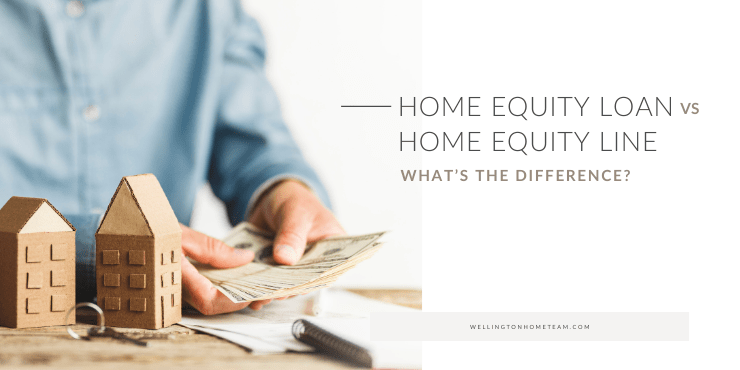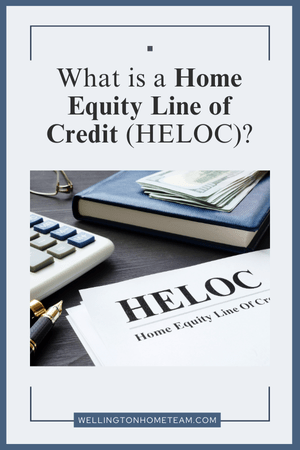Home Equity Loan Vs Home Equity Line: What’s the Difference?
Using your home’s equity in real estate finance can be a smart way to reach your financial goals. Two popular options for leveraging this equity are home equity loans and home equity lines of credit (HELOCs). While both offer homeowners access to funds based on their property’s value, they have distinct characteristics and suit different financial needs. In this comprehensive guide, we’ll take a closer look into the nuances of home equity loans versus home equity lines, highlighting their pros and cons to help you make an informed decision.

What is a Home Equity Loan?
A home equity loan, often referred to as a second mortgage, allows homeowners to borrow a lump sum of money against the equity in their property. The equity represents the difference between the home’s market value and the outstanding balance on any existing home mortgages.
The amount of equity a homeowner can access will depend on the lender, but some may allow up to 90% of the home’s value to be leveraged. For instance, if a property is valued at $800,000 and carries a mortgage balance of $300,000, the homeowner could potentially borrow up to $450,000. Let’s take a closer look at the pros and cons of home equity loans:
Pros of Home Equity Loans:
- Fixed Interest Rate: Home equity loans typically come with fixed interest rates, providing predictability in monthly payments throughout the loan term.
- Lump Sum Payment: Borrowers receive the entire loan amount upfront, making it ideal for one-time expenses such as home renovations or debt consolidation.
- Structured Repayment: Repayment terms are typically structured over a fixed period, simplifying budgeting and financial planning.
- Tax Deductibility: In many cases, the interest paid on a home equity loan is tax-deductible, offering potential tax benefits for homeowners.
Cons of Home Equity Loans:
- Closing Costs: Similar to a primary mortgage, home equity loans often entail closing costs, including appraisal fees, origination fees, and other charges.
- Risk of Foreclosure: Defaulting on a home equity loan can put your home at risk of foreclosure, as the property serves as collateral for the loan.
- Limited Flexibility: Once the loan is disbursed, the borrower cannot access additional funds without applying for a new loan.
What is a Home Equity Line of Credit (HELOC)?
A home equity line of credit (HELOC) functions as a revolving line of credit, allowing homeowners to borrow against their home’s equity as needed, similar to a credit card. Like a home equity loan a homeowner may be able to access up to 90% of their home’s value.
Let’s take a closer look at the pros and cons of home equity line of credit (HELOC):
 Pros of HELOCs:
Pros of HELOCs:
- Flexible Access to Funds: HELOCs offer flexibility in accessing funds, allowing borrowers to withdraw funds as needed during the draw period, which is typically 5 to 10 years.
- Interest-Only Payments: During the draw period, borrowers may have the option to make interest-only payments.
- Variable Interest Rates: While this can be a disadvantage in some cases, HELOCs often come with variable interest rates, which may initially be lower than fixed rates, potentially resulting in lower initial payments.
- Interest Only on Utilized Amount: Borrowers only pay interest on the amount they’ve actually withdrawn, rather than the entire credit line.
Cons of HELOCs:
- Variable Interest Rates: While variable rates can initially be lower, they are subject to fluctuations, potentially leading to higher payments over time.
- Risk of Payment Shock: After the draw period ends, HELOCs typically enter the repayment period, during which borrowers must repay both principal and interest, potentially resulting in higher monthly payments.
- Potential for Overspending: The flexibility of a HELOC may tempt some borrowers to overspend or use the credit line for non-essential expenses, leading to increased debt.
- Closing Costs and Fees: Similar to home equity loans, HELOCs may entail closing costs and annual fees, which can add to the overall cost of borrowing.
What is Better Home Equity Loan or HELOC?
Deciding between a home equity loan and a HELOC boils down to your financial needs and preferences. A home equity loan offers stability with fixed interest rates and a lump sum payment, making it ideal for specific, one-time expenses. On the other hand, a HELOC provides flexibility, allowing you to access funds as needed during a draw period, potentially offering lower initial payments. However, it comes with variable interest rates and the risk of payment shock after the draw period ends. Ultimately, consider your spending habits, financial goals, and comfort level with fluctuating payments to determine which option aligns best with your situation.
Is a Cash-Out Refinance the Same as a Home Equity Loan or HELOC?
While all three options involve accessing your home’s equity, they function differently. A cash-out refinance involves refinancing your existing mortgage for a higher amount than what you currently owe, with the excess amount being received as cash. Essentially, you replace your old mortgage with a new one, and the difference between the two amounts is given to you in cash. So a cash-out refinance is not the same as a home equity loan or HELOC.
Final Thoughts
Choosing between a home equity loan and a home equity line of credit requires careful consideration of your financial goals, cash flow needs, and risk tolerance. Home equity loans offer predictability and structure with fixed rates and lump sum payments, making them ideal for specific one-time expenses. On the other hand, HELOCs provide flexibility in accessing funds as needed and may offer lower initial payments during the draw period. However, they come with variable rates and the risk of payment shock after the draw period ends.
Before making a decision, it’s important to weigh the pros and cons of each option, assess your financial situation, and consult with a qualified financial advisor or mortgage specialist. By understanding the differences between home equity loans and home equity lines of credit, you can make an informed choice that aligns with your long-term financial objectives.
Please consider spreading the word and sharing; Home Equity Loan Vs Home Equity Line: What’s the Difference?
Learn the distinctions between home equity loans (second mortgages) and home equity lines (HELOCs) to make informed financial decisions. #homequityloan #homeequitylineAbout the Author
Top Wellington Realtor, Michelle Gibson, wrote: “Home Equity Loan Vs Home Equity Line: What’s the Difference?”
Michelle has been specializing in residential real estate since 2001 throughout Wellington Florida and the surrounding area. Whether you’re looking to buy, sell or rent she will guide you through the entire real estate transaction. If you’re ready to put Michelle’s knowledge and expertise to work for you call or e-mail her today.
Areas of service include Wellington, Lake Worth, Royal Palm Beach, Boynton Beach, West Palm Beach, Loxahatchee, Greenacres, and more.

 Michelle Gibson of the Hansen Real Estate Group Inc is a full-time REALTOR who has been specializing in Wellington, Florida real estate since 2001. This veteran of the real estate industry has expertise in technology, marketing, and social media.
Michelle Gibson of the Hansen Real Estate Group Inc is a full-time REALTOR who has been specializing in Wellington, Florida real estate since 2001. This veteran of the real estate industry has expertise in technology, marketing, and social media.